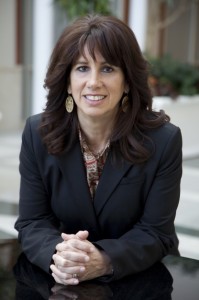I was listening to the radio as I was driving in my car, and the lyrics in the song struck me. It went something like this, “Cancer doesn’t discriminate or care if you’re just 38.” I thought to myself, “Well, yes it does.” Cancer has always been and remains a disease of aging. Perhaps the greatest risk factor for cancer, in general, is old age. As I wrote in an article a few years ago, “the real face of cancer has wrinkles.” According to National Cancer Institute data, the average age at cancer diagnosis is 66. Less than six percent of cases are diagnosed in people age 35 to 44, and for those younger than 35, cancer rates are lower still.
This song also made me think of a question about ovarian cancer my colleague recently received from a reporter. The reporter wanted to know if ovarian cancer treatment affected a woman’s ability to have children. Of course, it does, but what the reporter failed to recognize was that the majority of women diagnosed with ovarian cancer are beyond their childbearing years.
When, I hear or read such things, I worry that there is a misperception that cancer is more common among younger adults than is factually true. I worry because misperceptions about cancer create fear, and fear causes people to take actions that may not be medically necessary or even beneficial.
Now I recognize that even though the odds are most definitely in favor of those under 66, if you happen to be one of the rare but unfortunate individuals diagnosed at a younger age, these odds do not bring much comfort. This, however is where personalized cancer medicine may have its greatest impact. It has the potential to use science to identify those who need and will benefit from intervention—the six percent, if you will—and, at the same time, identifies who can be left alone. Currently, many cancer experts suspect that the general population is being over screened, and those at the greatest risk for cancer are under screened. Kimmel Cancer Center scientists are working to set a new standard, using their discoveries to develop a model that would appropriately screen those at greatest risk but move away from over screening those who don’t need it.
Similar progress can be made in treatment. In the latest issue of Promise & Progress I write about a study led by urologist Dr. H. Ballentine Carter that finds no harm in delaying treatment in men over 65 who have low-grade prostate cancer. Instead, he says, the best option may be a watch and wait approach in which the patient’s cancer is closely monitored. More than 200,000 men in the U.S. are diagnosed each year with prostate cancer, and the majority of them have a low risk of dying from their disease if treatment is deferred, Dr. Carter says. Yet, shockingly, more than 90 percent of these men choose some form of treatment.
It is important to understand that excessive screening and treatment does not save or improve lives. Every intervention comes with its own set of risks. Personalized cancer medicine strives to reduce risks and enhance benefits. As our Kimmel Cancer Center Director says, “it gets the right treatments to the right people at the right time.”

My mum passed away from cancer and my wife now has Leukaemia. She is a 50 year old medical doctor who has lived in excellent health for years, lived what by many standards would be a very healthy life style. I believe, however, that she lived with too much stress, drank too little pure water (hardly any), did not eat enough nutritious food on a regular basis (often skipped breakfast and lived on sugar snacks all day) and therefore ate too much sugar.
I have long believed in alternative medicines as my chronic asthma was significantly improved by a chiropractor who gave me a life when I was 15...after years and years of seeing many people chemically based medicine with no great results exempt a dependance on stronger and stinger medications. Not nearly 50, a change to a raw food diet has finally seen the end of my asthma, and for the first time in my life since early childhood I am drug free...to the amazement of my wife and her medical friends.
I am telling you all this as background to my question which is this:
There is a lot of information coming my way that cancer can only live in an acid environment and that the PH level of the body is therefore critical to the development and treatment of cancer.
Your web site page http://www.hopkinsmedicine.org/kimmel_cancer_center/news_events/featured/cancer_update_email_it_is_a_hoax.html did not address this question although it was stated in the hoax email.
I wonder if you would be kind enough to address it here.
Thank you.
A healthy diet is a win-win. We know eating and living healthy can help prevent a variety of diseases, including cancer. That said, I spoke to one of our leading Cancer Prevention and Control experts who told me that, while plausible, there currently are no systematic scientific studies that define how ph level affects cancer. The science just isn't in yet. Remember, the tumor microenvironment can be very different than the environment of the rest of the body. Our expert said tumors can switch to an alternative energy production pathway to create an acidic microenvironment, regardless of the food we eat.
Yes absolutely true. Healthy living and eating help to prevent cancer.
Comments are closed.